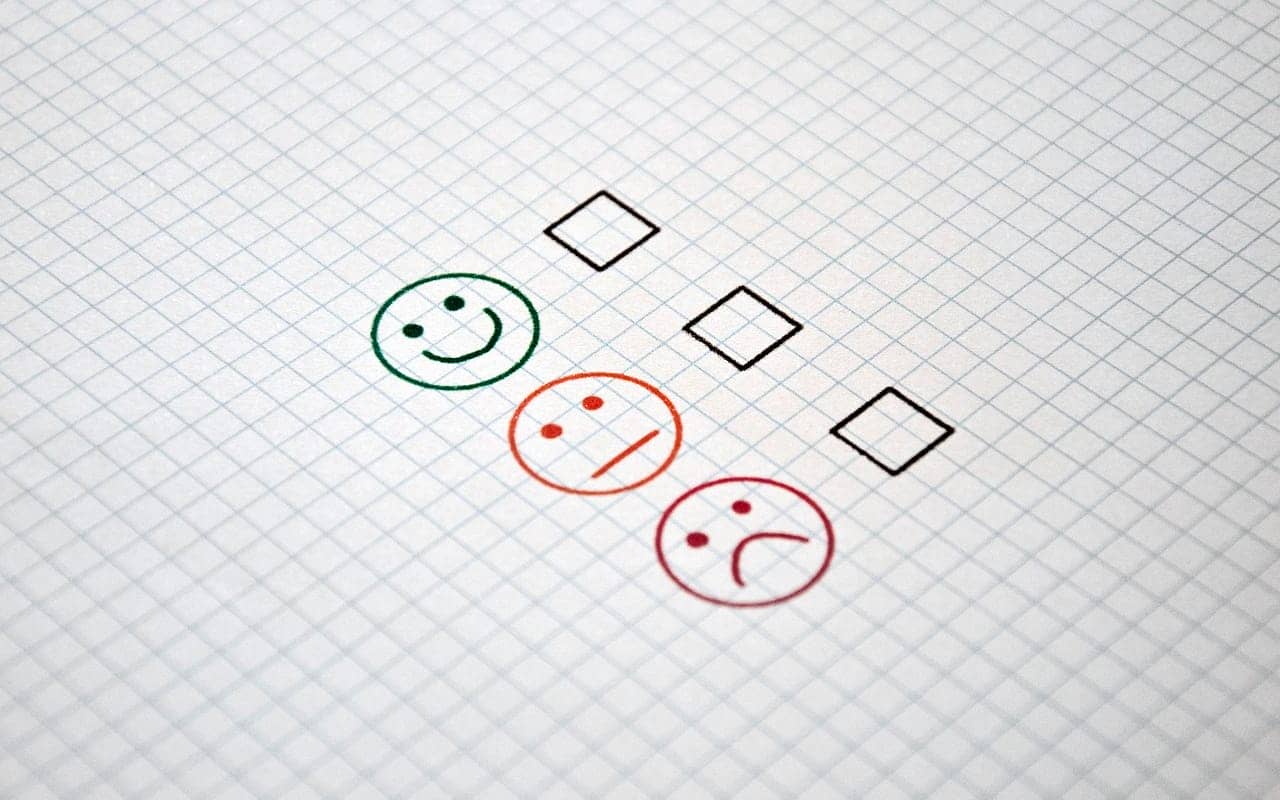Podcast: Download
Subscribe: Apple Podcasts | RSS

I raise this point because so many people ask general interest questions and call them philosophical.
But that doesn’t mean that they actually are philosophical.
Who am I to know?
As I’ve learned as a scholar with a PhD in Humanities, much of the best philosophy involves investigating of the nature of being – existence itself.
As a memory scientist and author of a book guided by the philosophy of Advaita Vedanta, demonstrating the ties between memory and ontological being has been a core aspect of my work for over a decade. This book is called The Victorious Mind.
I’m also working on a new book now, about the philosopher of memory, Giordano Bruno. It dives deep into what I would call the ontology of memory. It asks, what is the philosophical nature of memory’s existence.
Fascinating, right? Or is it too much intellectual noodling?
I don’t think so. When it comes to philosophical questions, I don’t think we can ever dig deep enough.
As Martin Heidegger often put it, asking deep philosophical questions of his own, we all need to question the being of being itself. Now how’s that for a mind bender?
Take things a step further:
How is it that we as beings have come to not only ask questions about the nature of being, but also come to question the nature of what it means to ask questions in the first place?
The way Heidegger puts it, the ultimate philosophical question is to question the nature of questioning itself.
So with that in mind, if you’re ready for more reflection and a massive list of my favorite philosophical questions divided into categories, let’s dive in!
207 Thought-Provoking Philosophical Questions
With these points in mind, here’s a list of questions that will help you experience rich and rewarding conversations with friends and family.
I’ve split the questions up into different categories and will sometimes discuss why the questions are so valuable to discuss.
Ready?
Let’s get started.
Ontology
As Dale Jacquette points out in his book Ontology, we often take the question of what exists for granted. What does it mean for something to exist? How does existence relate to things that are merely coming into being?
Ontological questions focus on Being with a capital B and how it relates to the opposite: non-being or non-existence. However, asking about non-being is tricky. As Plato puts it in The Sophist, the opposite of being cannot be non-being because being is require in order to question this question.
We didn’t have the “mind blown” meme back when I was in graduate school, but having my mind blown was exactly how I felt when I first thought about how non-being could never be the opposite of being. To think about nothing means you have to think about something. Wild!
Along these lines, here are some of the most important questions in the area of ontology:
- Why is there something rather than nothing?
- What does it mean to exist?
- What must be true in order for us to say that something exists or does not exist?
This question is especially interesting because we talk about many things that technically don’t exist, such as unicorns.
Yet, the very notion of unicorn is premised upon other things that do exist, such as horses and animals that have horns. We can also think about horns in relation to seashells. So with this in mind, is it really the case that unicorns do not exist?
- What laws govern matter?
- When does life begin?
This question applies both to life in terms of when it first appeared in the universe, and when life starts following pregnancy in a human. You can also ask to what extent that the universe itself might be alive. If it is alive, then the question of when it started living is fair game.
That said, you might like to know about Nietzsche. He was a philosopher who definitely thought the universe was not alive. See aphorism 109 of his book The Gay Science for an extraordinary warning against such humanization of being.
- What happens to us when we die?
- What is the most perfect form of being?
- Does a god exist?
- If a god exists, why would we need to prove this?
- Is change real or only apparent?
- What is real?
- What is reality?
- Is reality one or many?
This question means to investigate not just the nature of one reality as opposed to a multiverse. It is also the question of whether or not everything in the reality is connected, or if there is separation between things.
- Is reality material or spiritual?
- Is reality permanent, or is it itself always changing?
- If the entire universe is always in motion, can any object ever be at “rest”?
- Are light and darkness equal?
- Does history exist or did humans invent it? If so, does it repeat itself?
- Does the past continue to exist after it is gone?
- Is the world of tomorrow already here?
These last two questions were raised by Einstein and Gödel. For a full analysis, see A World Without Time.
In essence, it is fascinating to think that even though yesterday is gone, the world of yesterday is still there and potentially accessible.
Epistemology
As Christopher Norris puts it, epistemology boils down to the difference between opinion and verifiable fact. How do we know what we know and by what criteria do we know if that knowledge is valuable?
Knowledge can be about ideas, things, substances or states. Here are a pile of compelling questions you can ask in this area:
- What is the nature of knowledge?
- Where does knowledge reside? In individuals or in humanity collectively?
- Is knowledge in our sense-impressions? In mental perceptions? In our judgements?
- What counts as a valid source of knowledge?
- What are the different sources of knowledge?
- Is knowledge something that we can possess?
- What is truth?
- How do we test what is true?
- What is a question? What is a good question?
- Why do some words and phrases translate cleanly between languages while others do not?
- Can we think something into existence?
- Can we think something into non-existence?
- Can we think about things that don’t exist?
- What is a substance?
- What is a number?
- Do “spirits” exist? If so, do they “know” things?
- What is a fact?
- What is an opinion?
- What is a mistake?
- What does the fact that mistakes are possible tell us about the nature of reality?
- If you know what you’re looking for, why would questions about it arise?
If you don’t know what you’re looking for, how is it possible that you have enough knowledge to know that you want to find it? (This is essentially Meno’s Paradox.)
- How much can an individual person know?
- Can an individual ever know anything on their own?
This question is very important because language is not owned by any individual. At its core, all knowledge is likely shared by virtue of this fact alone.
- What is “language”?
- Are all languages equal?
- What makes a justified belief justified?
- How does language refer to the real world?
- What is truly objective and not subjective?
- What is the order in information? Or is it all chaos?
- What is philosophy?
- Why is philosophy important?
- Am I doomed to always be naive?
Ethics
Peter Singer is one of the most important philosophers associated with ethics. One of his core concerns involves the duties of individuals with respect to the whole.
Within this field, one must consider the maximization of pleasure and the minimization of pain. It’s very hard to balance these two factors without causing harm to some by minimizing pain for others – and this problem explains a lot of the strife and turmoil we see in the world throughout human history.
These questions will help you think through philosophical questions related to ethics.
- By what principles do we judge things right or wrong?
- What does it mean when we say that things “ought” to be a certain way?
- What are the principles, criteria and standards by which we should decide what to do?
- Is justice good because we prefer it, or do we prefer justice because it is good?
- What makes a human being moral?
- Should you seek to maximize your personal pleasure?
- Is it right to take on pain for yourself if it helps maximize the pleasure of others?
- What does it mean to be a good friend?
- What are my personal responsibilities as a local, national and global citizen?
- Is there a scientific basis to ethics?
- Sam Harris thinks that the answer to this question is yes. He defends his answer in The Moral Landscape.
- What is fairness?
- What are rights?
- How would I act if I cared for all life on the planet?
- How would I act if I considered both the short and long term outcomes of all my actions?
- How do we know when an authority should be followed?
- How do we know when it’s right to disobey authority?
- Is it right to keep a person alive artificially?
- Is killing always immoral and/or illegal?
- Should people be allowed to worship in any way they please?
- Is it right to allow children to determine their own gender?
- At what age should people be allowed to marry?
- How should we decide who gets to receive organ implants?
- How do we determine when death has occured?
Religion
One of the fascinating aspects of religion is that people make truth claims about their chosen faith, yet all chosen faiths are under constant attack. As Mikel Burley has pointed out, this has put all religions on the defensive.
In some ways, this makes religion very similar to philosophy because neither of them are a science. Although philosophy and religion are not the same, they both exist to help us answer the questions that science has yet to address.
And as you’ll see from the following list, it is possible for some religious questions to be philosophical in nature. It basically boils down to looking at the philosophical questions that have come up in both the attacks against religion and the defenses various believers have mounted.
- Does god exist?
- What are the reasons to believe that god exists?
- What is the nature of a god?
- Is god the ultimate reality?
- What is the relationship between an individual and a god?
- If a god does not exist, is there some other form of transcendent reality?
- Is it rational to believe in a god?
- Do you choose your faith or does it choose you?
- Can you be faithful and still experience doubt?
- If infinity is real, has god already reached it? If so, how is that possible given the definition of “infinity”?
- Does heaven exist?
- Does hell exist?
- Is it right for a god to create and/or allow harm for any reason?
- If god exists, why is there evil in the world?
- Is god supernatural, or at one with the universe?
- Is religion philosophical?
- Does any scientific evidence validate any religion?
- Are all religions fundamentally the same?
- Why do different religions exist?
- How do we evaluate different religions?
- Why do so many religions rely upon stories instead of facts?
- If religion is real, why do atheists exist?
- Is it possible for an atheist to have a religious or spiritual experience?
- To what extent do moral positions have religious significance?
- Is morality pointless without religion?
- Do science and religion conflict with one another?
Anthropological Philosophy
Anthropology has to do with people and their environments and how this relationship leads to the formation of thoughts, beliefs and behaviors. One of the greatest philosophers in this area was Friedrich Nietzsche, who sought to understand how humans create their own values. He was especially puzzled by how humans failed to see that they are the creators of their own values in the first place.
- What are human beings?
- What is human hope? Desire? Belief?
- What is consciousness?
- What is a thought?
- What is thinking?
- How is it possible for the mind to represent the world?
- Can we really know anything?
- Is human nature inherently good or evil?
- Do you humans act out of free will, or are our actions determined?
- What is technology?
- When is our technology good?
- When is our technology bad?
- Who is ultimately responsible for the outcomes of using technology? Individuals, or the entire species?
- What is enlightenment? Why do some people think they have it?
- Does education improve people? If so, why do we seem to make the same mistakes repeatedly?
- Why do people limit themselves by giving responsibility to a god?
- Does free will exist? If free will doesn’t exist, why do I feel like I am in control?
- What is human evolution?
- How do humans evolve differently than other life forms?
- Why is there ethnic conflict in the world?
- Why do the behaviors of people differ based on where they are born?
- How do families form?
- How do individual identities form?
- Why do our personalities change over time?
- If your brain were transplanted into another body, would you still be you?
- How do social hierarchies form?
- Why are there different social classes?
- How do people learn languages?
- Why do some languages die?
- Do minds cause physical events, or does the physical body exclusively cause events in the mind? (Epiphenomenalism)
- What is it like to experience something?
- Why do humans pretend?
- How do I know that other people think and feel in the same ways I do?
- How do I know I’m not dreaming?
Happiness
- Is happiness the product of chemicals flowing through your brain? Or is it more?
- What is the good life?
- Can people be happy? Do they actually want to be happy?
- Should people pursue happiness?
- Can you legitimately achieve happiness without making others unhappy?
- Is it selfish to want to be happy?
- Is it wrong to not care about being happy?
- Do we need goals in order to be happy?
- Does life have a meaning?
- Can meaning be found or does it have to be invented? (Existentialism)
- What is suffering?
- Is it rational to donate to charities?
- How do you describe happiness
- How do you measure happiness?
Some people have thought that you actually can measure happiness. Jeremy Benthem’s felicific calculus is one strategy.
- How do you control your own happiness?
- For whom is happiness possible?
- Is the pursuit of happiness self-defeating? When does seeking happiness make you unhappy?
- How do you find happiness with others?
Philosophy of Art
- Can art be defined?
- Do artists, consumers or institutions like galleries and museums get to define the meaning of art?
- What media belongs to art and what doesn’t? (Film, literature, cinema, etc.)
- Why do certain artists resemble one another while others couldn’t be more different?
- What is it about art that causes a response in humans?
- What are the different kinds of responses to art?
- Is the value of art in the work or in the mind of the beholder?
- Does art have a purpose, or is it an end in itself?
- What is an authentic performance of a musical piece?
- In Philosophy: The Basics, Nigel Warburton wonders how we could ever experience Bach authentically without a time machine?
- Is a high quality forgery still art?
- What is an artistic style? How do we know one when we see it?
- What do the cinematic arts teach us about the nature of time?
Political Philosophy
Plato believed that societies can be harmonized through political philosophy. He suggested an aristocracy would be best, and had some ideas we might think crazy now. For example, artists and poets would need to be expelled altogether because their representations bent reality.
Ironically, one of Plato’s stories, the Allegory of the Cave (found in The Republic), forms the basis of The Matrix, one of the most popular movies of all time.
When I did my second MA at the European Graduate School, there was no such contradiction. People were allowed to submit novels instead of formal thesis papers. I think it’s fantastic that scholarship has advanced to the point that art itself can be considered as a form of philosophical questioning at universities around the world.
Here are some of the most compelling questions from political philosophy.
- What is equality?
- What is freedom?
- Are equality and freedom reasonable goals?
- How can they be achieved?
- What can justify the limits on freedom enacted by the state?
- Should money be equally distributed?
- What does it mean to “deserve” something without having “earned” it?
- Why do different people have different needs?
- Why does discrimination arise?
- Since voters typically cannot become political experts, is their voice really valid?
- Is there a right to freedom of speech?
- Should people be allowed to lie and/or misrepresent the truth?
- How can we protect the innocent from punishment?
Philosophy of Science
As James Ladyman points out, many aspects of life do not change. Most people still work very hard just to survive. Yet, we’ve never had more access to technology than ever before, all thanks to the advancements of science.
It’s not just that science has given us miraculous tools like phones that take high quality photographs. Science has also helped us figure out how to ship them around the world and link them to satellites flying above our heads.
It’s questions like these that have made it all possible.
- What is science?
- What is an experiment?
- How do we know if the results of an experiment are valid?
- What are the limits of science?
- How far might science actually go given enough time and resources?
- Are there any limits to the problem-solving capacity of computers?
- Will progress continue on into infinity?
- Are there any problems with the empirical method?
- What is the nature of information, data and evidence?
- How do we know that our tools of detection provide accurate and precise information?
- Was math discovered or invented?
- Is a final “theory of everything” possible?
- If scientists determine that something should be done but people reject it, is it right to impose science upon them?
- Are there a finite or infinite number of questions for science to tackle?
- How should we understand universal cosmological time?
- What is life?
- What is the nature of a living system?
- What is the difference between a living system and the matter described by physics?
- Does life have a goal? (And if it doesn’t, how does this impact human psychology relative to philosophy?)
- If science shows that something is true, are we obliged to use the result?
- What should we do when scientists break the law or lie?
- Can you really increase your IQ?
How to Remember Good Philosophical Questions
I hope you’ve enjoyed this list, even if it includes some unanswerable philosophical questions. That’s just the way it goes with many intellectual questions, and it’s great brain exercise to at least try and answer them.
One problem people face, however, is that they come across good philosophical questions, only to forget them.
If you’d like to continue enjoying the benefits of deep thinking, learn now to memorize as many philosophical questions as you wish with my FREE Memory Improvement Kit:
Many of the best philosophers and deep thinkers have used the techniques I talk about in this course to reflect on deep philosophical questions about life.
And because of how the techniques work, they remembered their answers too.
Want more incredible philosophical questions? Check out the 20 best philosophy books great thinkers must read. These suggestions will give you even more questions to ask and enjoy pondering.
Related Posts
- Mindshift: 3 "Time Travel" Secrets From People Learning How To Learn
Barbara Oakley's Mindshift comes packed with exercises, stories and inspiration for improving your life. Harness…
- The Dominic System: What It Is And Why People Love It
Do you face problems remembering numbers? Learn to use the Dominic System to train your…
- Mindshift: 3 "Time Travel" Secrets From People Learning How To Learn
Barbara Oakley's Mindshift comes packed with exercises, stories and inspiration for improving your life. Harness…












2 Responses
Heuristic is a new word to me that clarified my observations of decision making by many in this whackadoodle upside down world, in my opinion! I am grateful for your sharing!
Thanks so much for stopping by to check these questions out and glad they could clarify something for you!